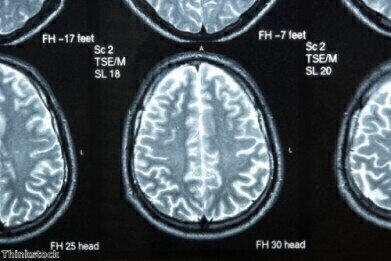-
 The drug has proved successful at stoping cancer cells growing in the brain during laboratory tests
The drug has proved successful at stoping cancer cells growing in the brain during laboratory tests
Microscopy & microtechniques
New drug proves effective at brain cancer treatment
Nov 18 2013
A new drug could have the capability to treat brain tumours by stop them from growing, while not affecting healthy tissue. New research, published in the medical journal 'PLOS ONE', suggests that a drug, which is currently already in the process of clinical development, could be an effective treatment for brain cancer that does not affect healthy cells.
Scientists from the Samantha Dickson Brain Cancer Unit, working with Cancer Research UK, focused their research upon glioblastoma, which is the most common form of brain tumour in the UK. Funded by the Brain Tumour Charity and University College London Cancer Institute, researchers tested the effectiveness of over 150 potential drug treatments.
Glioblastoma cells and healthy brain cells were grown in a laboratory for the purpose of the drug tests. All of the results from each of the drug types were compared and it was found that one of the drug molecules - J101 - managed to stop the growth of the glioblastoma cells but did not affect the healthy tissue.
J101 works by blocking a cellular molecule called polo-like kinase 1 (Plk1), which signals the cancer cells to grow and multiply. Scientists found that three drugs that work in this way are currently undergoing clinical development and that they are currently better able to move from the bloodstream to the brain. Although J101 works in the same way as the three drugs in development, it does not cross over the brain as well.
Doctor Steve Pollard, senior research fellow at University College London Cancer Institute and lead author of the study, said: “The pharmaceutical industry has developed many different compounds which are now in preclinical and clinical development as anti-cancer drugs.
"The challenge is determining which potential therapies should be prioritised for which cancers. In this study we show that these glioblastoma cells are particularly vulnerable to these new treatments probably because of faulty p53, and we want to see them developed to treat the disease.”
Digital Edition
Lab Asia Dec 2025
December 2025
Chromatography Articles- Cutting-edge sample preparation tools help laboratories to stay ahead of the curveMass Spectrometry & Spectroscopy Articles- Unlocking the complexity of metabolomics: Pushi...
View all digital editions
Events
Jan 21 2026 Tokyo, Japan
Jan 28 2026 Tokyo, Japan
Jan 29 2026 New Delhi, India
Feb 07 2026 Boston, MA, USA
Asia Pharma Expo/Asia Lab Expo
Feb 12 2026 Dhaka, Bangladesh
.jpg)
-(2).jpg)
















